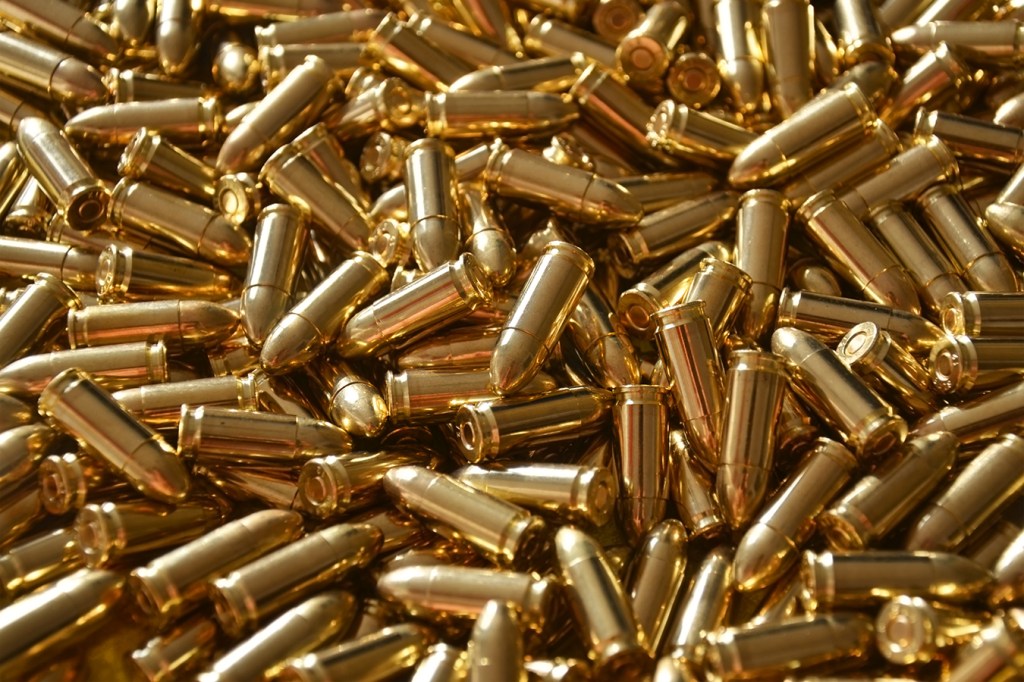California has some of the strictest gun laws in the country — and one of the lowest gun death rates. Public health experts believe one leads to the other.
But even with strong laws, 3,184 people died in gun-related incidents in California in 2017, up from 2,942 in 2014, according to data from the Centers for Disease Control and Prevention. Roughly half of suicides nationwide are gun-related.
California also has had numerous mass shootings, including the November 2018 attack at the Borderline Bar & Grill in Thousand Oaks, where a gunman killed 12 people before killing himself. Last Tuesday, a former employee killed two workers and himself at a Morgan Hill Ford dealership.
Even tougher gun control laws took effect Monday. California is the first state in the nation to require anyone buying ammunition to go through a background check at the time of each purchase. Ammunition vendors must also start submitting sales records to the state Department of Justice.
These new rules are part of Proposition 63, a gun-control package approved by voters in 2016. The measure was introduced following the December 2015 shooting at a social services center in San Bernardino, where a husband and wife killed 14 people and injured several others.
Other pieces of the package were previously implemented: Residents and businesses must now report lost or stolen guns, internet sales of ammunition are restricted to licensed vendors, and some felons must give up their guns.
A provision to fully ban the ownership of high-capacity magazines — even ones that people already possess — hasn’t been implemented pending litigation.
Gun control advocates agree that the background check requirement is the key piece of this package.
California, like many other states, already required background checks to purchase firearms.
“But we didn’t have that infrastructure for purchasing ammunition,” said Dr. Garen Wintemute, an emergency room physician and director of the Violence Prevention Research Program at the University of California-Davis. “And as we sometimes say, guns don’t kill people, bullets do.”
The idea is to keep guns and bullets away from those who shouldn’t have them and further reduce the rate of gun violence, Wintemute said. That also helps reduce trauma in communities where gunshots are part of the everyday soundtrack, he said.
But some policy watchers say the new rules don’t address the black market — a key source of firearms and ammunition for criminals.
“If you can buy a handgun illegally, you can also get ammunition illegally,” said Amy Swearer, a senior legal policy analyst with the conservative Heritage Foundation in Washington, D.C. “It also doesn’t take into account that some people manufacture their own ammunition.”
So how hard will it be to get ammunition if you want it? Here’s how the new rule will — and won’t — work:
How will the background checks work?
Every time someone purchases ammunition — in any amount — from a licensed retailer, he or she will have to present a California driver’s license or identification card. The seller will check a state Department of Justice database to see if the buyer has a legal gun and is not prohibited from possessing firearms. Each eligibility check will cost $1.
The background check for registered gun owners should take only seconds, said Ari Freilich, a staff attorney with the San Francisco-based Giffords Law Center to Prevent Gun Violence.
Does this apply to online sales?
Yes. Online ammo customers must also undergo background checks.
Another provision affecting online purchases took effect earlier this year: Ammunition purchased over the internet must be shipped to a licensed retailer, where the customer must pick it up in person.
Can you buy ammo out of state to get around these requirements?
Proposition 63 requires that residents buying ammunition out of state also have it delivered to a licensed vendor in California, similar to people purchasing bullets online. The law prohibits people from transporting ammunition bought out of state into California.
A first offense will be considered an infraction. A subsequent offense could result in a misdemeanor charge.
How is California’s new background check rule unique?
Four other states — Connecticut, Illinois, Massachusetts and New Jersey — require individuals to obtain a permit or license after passing a background check that allows them to buy ammunition for a period of time. California is the first to require a background check every time someone buys ammo.
New York adopted a law similar to California’s that has not yet been enacted, Freilich said.
What happened to the ban on high-capacity magazines?
Since 2000, California has prohibited residents from buying or selling high-capacity magazines, accessories that allow shooters to fire more bullets without reloading. But people who had them before the ban were allowed to keep them.
Proposition 63 would end this — meaning individuals who already owned high-capacity magazines also would have to get rid of them.
The National Rifle Association’s state chapter filed a lawsuit arguing that the Proposition 63 ban on high-capacity magazines violates the Second Amendment of the U.S. Constitution.
Earlier this year, a federal judge agreed, but the state is appealing the decision.
This story was produced by KFF Health News, which publishes California Healthline, an editorially independent service of the California Health Care Foundation.







